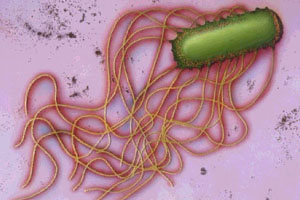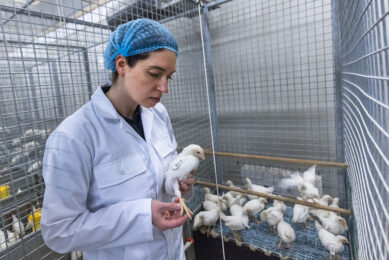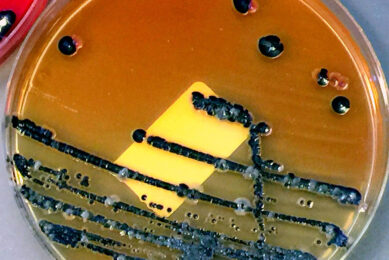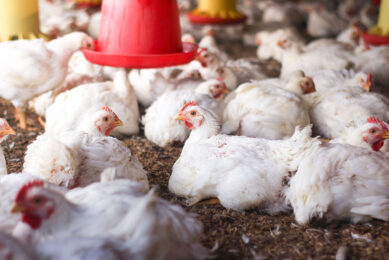EFSA: EU wide Salmonellosis outbreak due to turkeys?

The European Food Safety Authority (EFSA) and the European Centre for Disease Prevention and Control have published a rapid risk assessment on the multi-country outbreak of Salmonella enteric serovar Stanley currently taking place in Austria, Belgium, Czech Republic, Germany, Hungary, Slovak Republic and the United Kingdom. The most recent assessment points to turkey meat as the culprit.
The Stanley serovar is more commonly associated with human infections in south-east Asia. There have been 418 confirmed and probable cases of Salmonella Stanley reported in the EU between August 2011 and September 2012.
On 14 September 2012 the European Commission asked EFSA and ECDC for joint scientific and technical assistance on the possible source of the on-going outbreak of Salmonella Stanley infection. This assistance applied particularly to:
• a summary of the descriptive epidemiology of human cases and an assessment of the current trend of incidence
• a collation of information on possible sources of S. Stanley in the EU,
• an assessment on the robustness of evidence implicating the possible sources of the on-going outbreak based on epidemiological data and molecular analyses both from the human, food and animal perspective.
At the EU level, ECDC is facilitating a coordinated response to the investigation related to human cases by gathering the available epidemiological and microbiological information, supporting the public health investigations in Member States and liaising with EC, EFSA and competent food safety partners in the EU.
• An outbreak of Salmonella [enterica_ serotype] Stanley infection involving 167 confirmed and 254 probable cases is on-going in several Member States of the European Union (EU). As cases do not have travel history outside the EU within the usual incubation period for salmonellosis, these findings strongly suggest a multi-state outbreak currently taking place in several countries in the EU. The descriptive epidemiology of human cases indicates a transmission originating from a persistent common source or multiple sources in the EU that are contaminated with isolates indistinguishable by XbaI-PFGE.
• Food and veterinary investigations conducted in Austria, Belgium, Germany, Czech Republic, Poland, and Hungary identified an indistinguishable XbaI-PFGE fingerprint and a common resistance to nalidixic acid with concomitant decreased susceptibility to ciprofloxacin, among isolates originating from the turkey production chain (turkeys and turkey meat). Isolates with indistinguishable PFGE patterns were also detected in some cases from broiler flocks (breeding and fattening chicken flocks) and meat from other animal species (broiler meat, beef and pork.)
• The epidemiological and microbiological information gathered through the public health, food, and veterinary investigations strongly suggest that the turkey production chain is the source of the outbreak. However, the contribution of other food and animal sources, such as beef, pork, and broiler meat to the outbreak cannot be ruled out.
• As control measures have not yet been implemented to remove the source of infection and potential food vehicles from the market, it is likely that additional human cases of S. Stanley infections will be reported in EU Member States.
• It is important to highlight that persons working in the food chain at all levels (from production to catering) as well as consumers should be very strict with personal (hand washing) and food hygiene (avoid cross-contamination between ready-to-eat and raw meat) when handling raw turkey meat.
• ECDC, EFSA, and the EU Salmonella Reference Laboratory are encouraging all Member States to perform PFGE analysis on food, animal, and human S. Stanley isolates from 2011 and 2012, and to submit their data to ECDC. This will provide information on the diversity of S. Stanley in the EU, allowing a more accurate assessment of the situation.
• Further information on the trace-back and trace-forward of foods items in the food chain will be necessary to understand and assess the risk associated with this outbreak. In addition, this information will help in the identification of the primary source of the outbreak strain and to track the spreading along the food chain. This information would in turn help to define the risk management actions to be taken in order to control the contamination with this strain in the animal production and food chain. These targeted measures are expected to help control the outbreak and prevent further human cases.
• As soon as the information above becomes available, ECDC and EFSA recommend that further actions should be taken by risk managers to detect and contain the S. Stanley infection in turkey production and the subsequent contamination of turkey meat, and when necessary, in the broiler production chain.
Source: EFSA
Join 31,000+ subscribers
Subscribe to our newsletter to stay updated about all the need-to-know content in the poultry sector, three times a week. Beheer
Beheer











 WP Admin
WP Admin  Bewerk bericht
Bewerk bericht